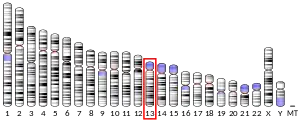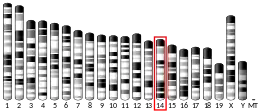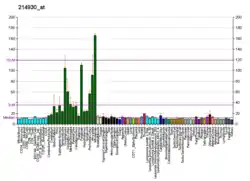| SLITRK5 | |||||||||||||||||||||||||||||||||||||||||||||||||||
|---|---|---|---|---|---|---|---|---|---|---|---|---|---|---|---|---|---|---|---|---|---|---|---|---|---|---|---|---|---|---|---|---|---|---|---|---|---|---|---|---|---|---|---|---|---|---|---|---|---|---|---|
| Identifiers | |||||||||||||||||||||||||||||||||||||||||||||||||||
| Aliases | SLITRK5, LRRC11, bA364G4.2, SLIT and NTRK like family member 5 | ||||||||||||||||||||||||||||||||||||||||||||||||||
| External IDs | OMIM: 609680 MGI: 2679448 HomoloGene: 9193 GeneCards: SLITRK5 | ||||||||||||||||||||||||||||||||||||||||||||||||||
| |||||||||||||||||||||||||||||||||||||||||||||||||||
| |||||||||||||||||||||||||||||||||||||||||||||||||||
| |||||||||||||||||||||||||||||||||||||||||||||||||||
| |||||||||||||||||||||||||||||||||||||||||||||||||||
| Wikidata | |||||||||||||||||||||||||||||||||||||||||||||||||||
| |||||||||||||||||||||||||||||||||||||||||||||||||||
SLIT and NTRK-like protein 5 is a protein that in humans is encoded by the SLITRK5 gene.[5][6][7]
Function
Members of the SLITRK family, such as SLITRK5, are integral membrane proteins with 2 N-terminal leucine-rich repeat (LRR) domains similar to those of SLIT proteins (see SLIT1; MIM 603742). Most SLITRKs, including SLITRK5, also have C-terminal regions that share homology with neurotrophin receptors (see NTRK1; MIM 191315). SLITRKs are expressed predominantly in neural tissues and have neurite-modulating activity (Aruga et al., 2003).[supplied by OMIM][7]
References
- 1 2 3 GRCh38: Ensembl release 89: ENSG00000165300 - Ensembl, May 2017
- 1 2 3 GRCm38: Ensembl release 89: ENSMUSG00000033214 - Ensembl, May 2017
- ↑ "Human PubMed Reference:". National Center for Biotechnology Information, U.S. National Library of Medicine.
- ↑ "Mouse PubMed Reference:". National Center for Biotechnology Information, U.S. National Library of Medicine.
- ↑ Nagase T, Ishikawa K, Suyama M, Kikuno R, Hirosawa M, Miyajima N, Tanaka A, Kotani H, Nomura N, Ohara O (December 1998). "Prediction of the coding sequences of unidentified human genes. XII. The complete sequences of 100 new cDNA clones from brain which code for large proteins in vitro". DNA Research. 5 (6): 355–64. doi:10.1093/dnares/5.6.355. PMID 10048485.
- ↑ Aruga J, Yokota N, Mikoshiba K (October 2003). "Human SLITRK family genes: genomic organization and expression profiling in normal brain and brain tumor tissue". Gene. 315: 87–94. doi:10.1016/S0378-1119(03)00715-7. PMID 14557068.
- 1 2 "Entrez Gene: SLITRK5 SLIT and NTRK-like family, member 5".
Further reading
- Amanchy R, Kalume DE, Iwahori A, Zhong J, Pandey A (2006). "Phosphoproteome analysis of HeLa cells using stable isotope labeling with amino acids in cell culture (SILAC)". Journal of Proteome Research. 4 (5): 1661–71. doi:10.1021/pr050134h. PMID 16212419.
- Aruga J, Mikoshiba K (September 2003). "Identification and characterization of Slitrk, a novel neuronal transmembrane protein family controlling neurite outgrowth". Molecular and Cellular Neurosciences. 24 (1): 117–29. doi:10.1016/S1044-7431(03)00129-5. PMID 14550773. S2CID 25473221.
This article is issued from Wikipedia. The text is licensed under Creative Commons - Attribution - Sharealike. Additional terms may apply for the media files.




